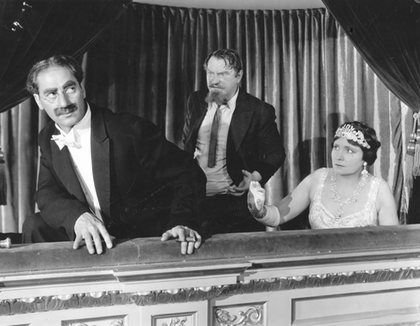

Dear Metropolitan Opera:
I have been a loyal subscriber to the Met since I moved to the New York area, but I am sad to announce that I will not be buying a subscription to next year’s season.
Looking back at my season this year, I have found that most of the performances for which I’ve bought tickets a year early have had major cancellations, either weeks before or the day of. Here’s what has happened to me this year in my subscription follies:
- Aida on October 21st: Dolora Zajick canceled
- Turandot on October 28th: Maria Guleghina canceled
- Hoffmann on December 23rd: Rolando Villazon, Rene Pape and Kathleen Kim canceled
- Hamlet on March 24th: Natalie Dessay canceled
- Traviata on April 7th: Leonard Slatkin canceled
- Tosca on April 14th: James Levine and Karita Mattila canceled
- Lulu on May 12th: Levine canceled
Now for many of these nights there were great performers in their place. Olga Borodina‘s Amneris was wonderful, Lise Lindstrom was a powerful Turandot, Rachelle Gilmore was a fantastic Olympia. Leonard Slatkin didn’t know the score so anyone will be better than him, and I am a huge fan of Fabio Luisi and trust in his ability to create a wonderful Tosca and Lulu.
I am also aware that these cancellations are not directly the fault of the house, and only rarely the fault of the performer (except in the case of Slatkin), but still the questions remain:
Why should I purchase my tickets a year in advance with this frequency of cancellations? What is the advantage for a young, busy, cash-strapped opera lover?
There must be some incentive to purchasing tickets in advance for it to be viable in the eyes of the opera world as it stands today, but as it is the risk is too great to gamble what spare money I do have on the potential of seeing a poor replacement for a star who I was scheduled to see.
Since I can no longer expect that the announced cast will show up, I will continue to go to the Met, but only purchasing tickets the day of the performance, standing room if need be.
The Met has said over and over again that they are trying to attract the next generation of opera enthusiasts. I am that audience: a 25 year old professional with the passion to attend the opera. Unfortunately, I’m getting tired of the inconsistency and price. As I consider how I’ll buy tickets next year, it seems more likely that I will be calling for standing room tickets at noon each day I intend to go.
Rush tickets are not a possibility for me, as I work all day and cannot sit in line. We might as well face the reality that your rush ticket program is not reaching the audience you targeted. Stroll by the rush ticket line any day and you’ll find the same retirees who would have bought family circle had the rush program not been available.
The money currently put forward for the rush ticket program would be far better spent on a “Young Met” program, allowing people such as myself a way to go to the Met regularly.
The draw for the next generation of opera fans is waning fast, and you must do something to address this situation. Realize that the people you want aren’t buying subscriptions anymore, partly because they don’t have several hundred dollars (at least) burning a hole in their pocket, and partly because they never know what they’re going to get.
You were recently given the largest gift in Met history. I hope to see some progress in coming seasons regarding these issues, and I am looking forward to another year of operatic enjoyment in your storied house, albeit on a day-by-day basis.
I welcome any response and would love to share my personal experience and thoughts with anyone willing to listen, my personal email is [email protected].
With love and hope,
Devon C. Estes

























Comments